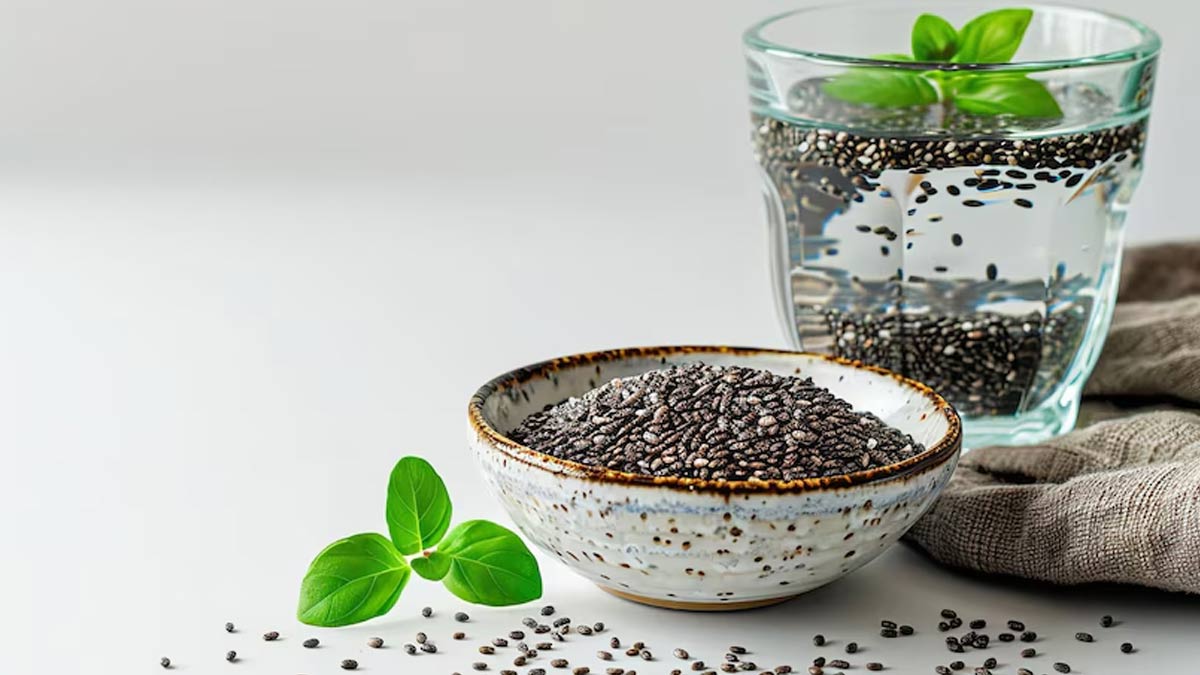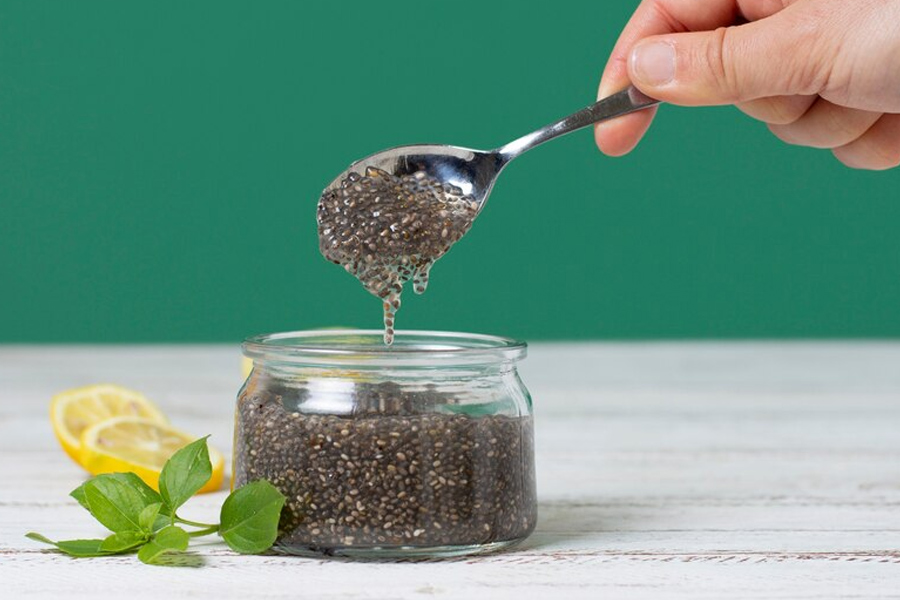
Chia seeds have recently gained immense popularity among many many health-conscious individuals due to their rich nutritional profile. Packed with fibre, omega-3 fatty acids, protein, and essential minerals, they are often regarded as a "superfood." However, as beneficial as chia seeds can be, there is such a thing as too much of a good thing. Consuming them in excess can lead to various side effects that may impact your health. From digestive discomfort to potential allergic reactions, understanding these risks is crucial for anyone looking to incorporate chia seeds into their daily diet. Here’s a closer look at the potential side effects of eating too many chia seeds and tips on how to consume them wisely.
Table of Content:-
To understand how eating to many chia seeds can have side effects, OnlyMyHealth interacted with Dietician Priyanka Patil, Clinical Dietitian, AIMS Hospital, "Chia seeds are often hailed as a superfood due to their nutritional benefits, but consuming them in excess can lead to some side effects." Here are some side effects of eating too many chia seeds.
1. Digestive Issues

Fibre overload: Chia seeds are incredibly high in fibre. While fibre is essential for digestive health, studies show that too much of it can lead to gastrointestinal discomfort. When consumed in excess, chia seeds can cause bloating, gas, and constipation. This is because chia seeds absorb a significant amount of water and expand in the digestive tract, which can exacerbate these symptoms. For individuals who are not accustomed to a high-fibre diet, this sudden increase can be particularly challenging.
Bowel irregularity: A sudden boost in fibre intake from chia seeds can also disrupt bowel regularity. Patil points out that "For those not accustomed to a high-fibre diet, suddenly increasing chia seed intake can disrupt bowel regularity." It is crucial to increase fibre intake gradually and drink plenty of water to help manage these effects.
Also read: 5 Mistakes To Avoid While Eating Chia Seeds
2. Interference with Nutrient Absorption
Chia seeds are packed with fibre, which can be both beneficial and potentially problematic. While fibre is essential for digestion, excessive amounts can interfere with the absorption of certain minerals. "Excessive fibre from chia seeds might interfere with the absorption of minerals such as calcium and magnesium, which could potentially affect bone health if not managed properly," notes Patil. To avoid this, it's important to maintain a balanced diet and not rely excessively on one single source of fibre.
3. Allergic Reactions
Although rare, studies show that some individuals may experience allergic reactions to chia seeds. Symptoms might include itching, rash, or swelling. If someone has never consumed chia seeds before, it's advisable to start with a small amount to see if there is any adverse reaction. As Patil highlights, "Potential allergies, although rare, should be considered. Individuals may experience symptoms like itching, rash, or swelling."
4. Risks for Individuals with Certain Conditions

Blood sugar levels: Chia seeds have been known to stabilise blood sugar levels, which can be beneficial for most people. However, for those with diabetes or individuals on blood sugar-regulating medications, excessive consumption could affect blood sugar levels.
Anticoagulant effects: Chia seeds are rich in omega-3 fatty acids, which have natural blood-thinning properties. Consuming them in large quantities could increase the risk of bleeding, especially for individuals on anticoagulant medications. "Overconsumption might exacerbate bleeding risks, especially for those on anticoagulant medications," advises Patil.
Also read: Whole, Ground Or Soaked: What Is The Best Way To Eat Chia Seeds For Maximum Benefits?
5. Caloric Intake and Weight Gain
Chia seeds are calorie-dense. While they are packed with nutrients, eating them in large quantities can contribute to excessive caloric intake. Without balancing this intake with overall diet and physical activity, it could potentially lead to weight gain. Patil warns, "Chia seeds are calorie-dense, and eating them in large quantities can lead to weight gain if not balanced with diet and exercise."

Guidelines for Safe Consumption
To enjoy the health benefits of chia seeds without experiencing the side effects, moderation is key. A typical serving size is about one to two tablespoons per day. "To mitigate these risks, it is advisable to consume chia seeds in moderation," recommends Patil. Individuals with existing health conditions or those on specific medications should consult healthcare professionals before significantly increasing their chia seed intake.
While chia seeds are a nutritious addition to the diet, it is essential to consume them in moderation to avoid potential side effects. Balance is the foundation of a healthy diet, and knowing how much is too much can help in making informed choices for better health.
Also watch this video
How we keep this article up to date:
We work with experts and keep a close eye on the latest in health and wellness. Whenever there is a new research or helpful information, we update our articles with accurate and useful advice.
Current Version